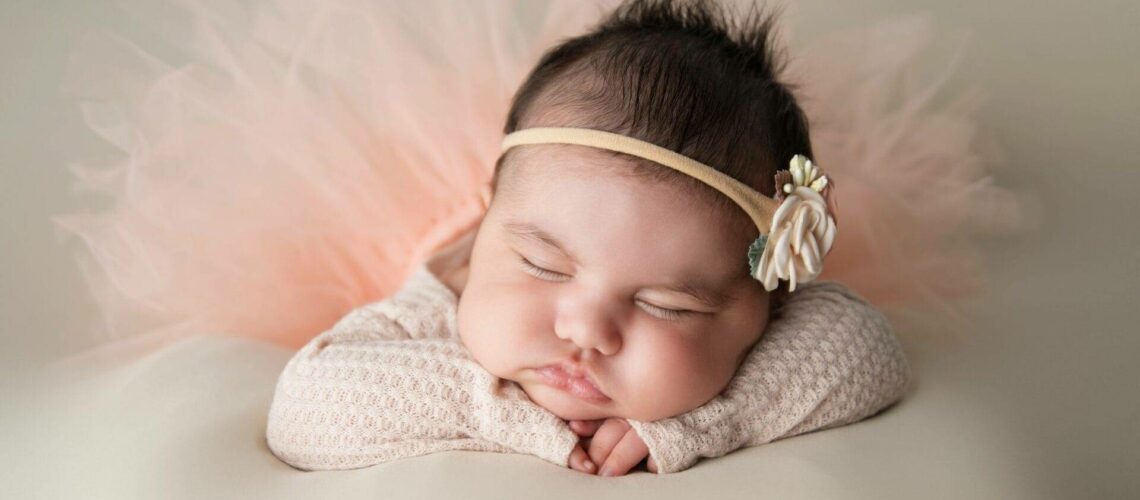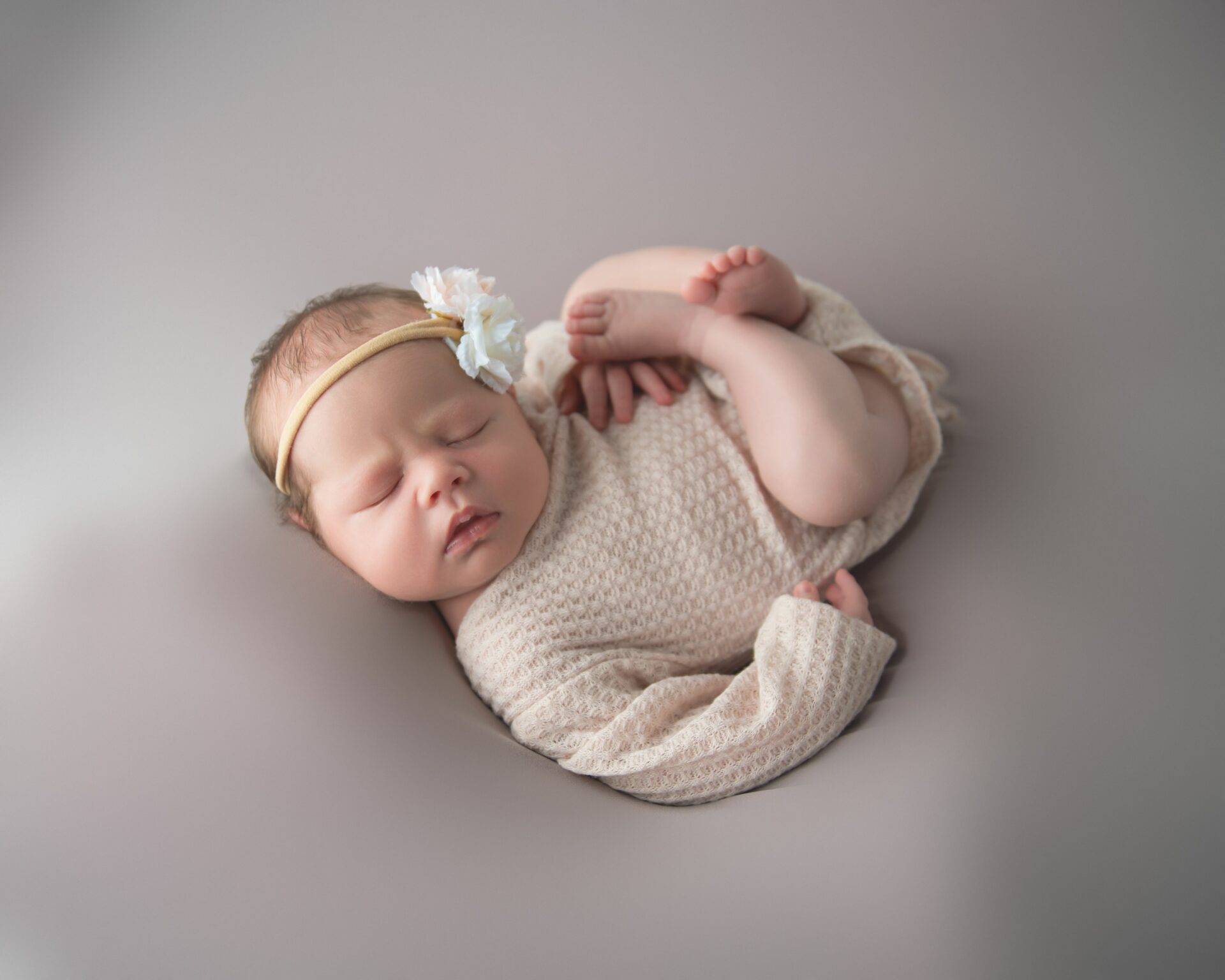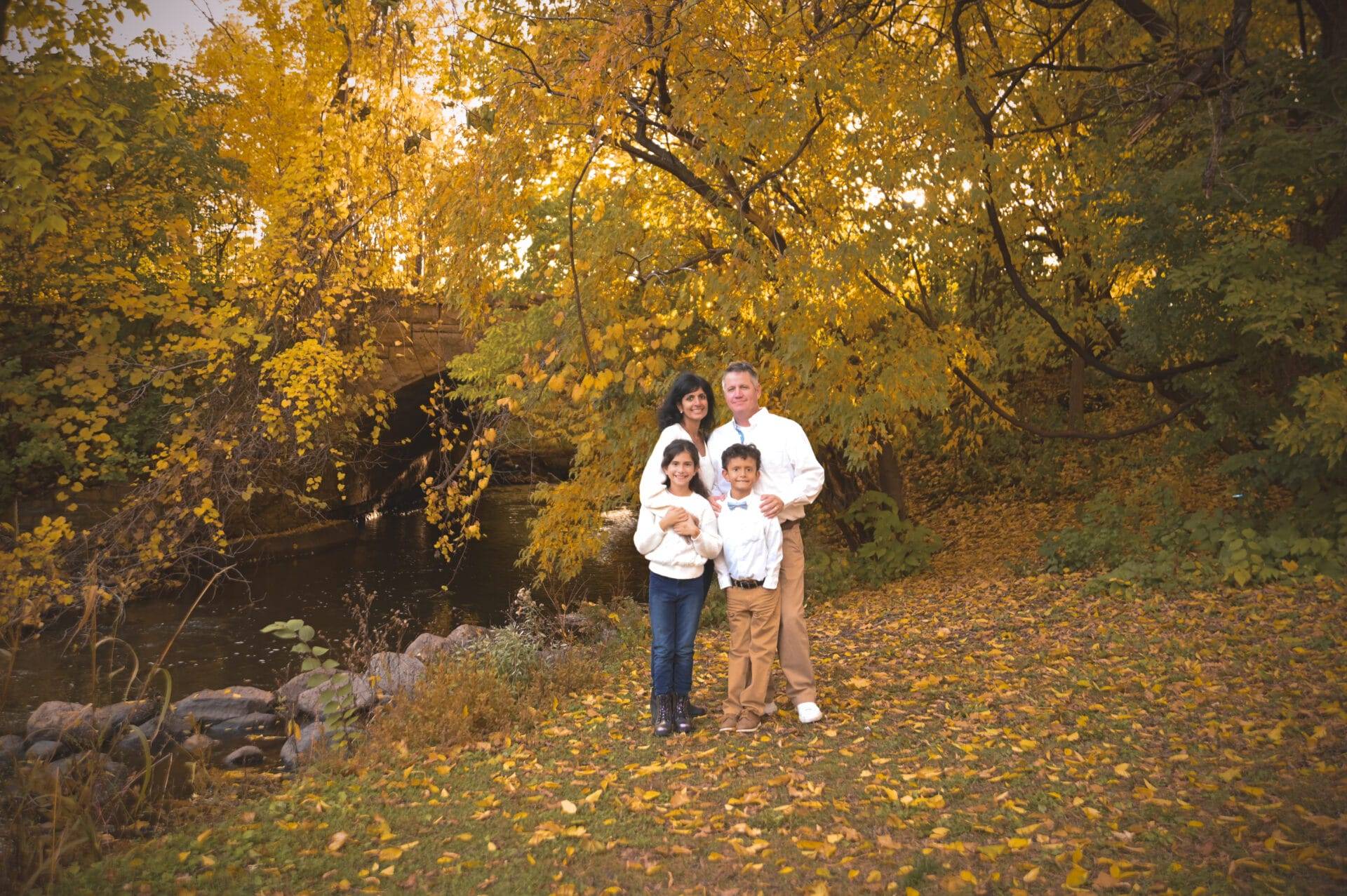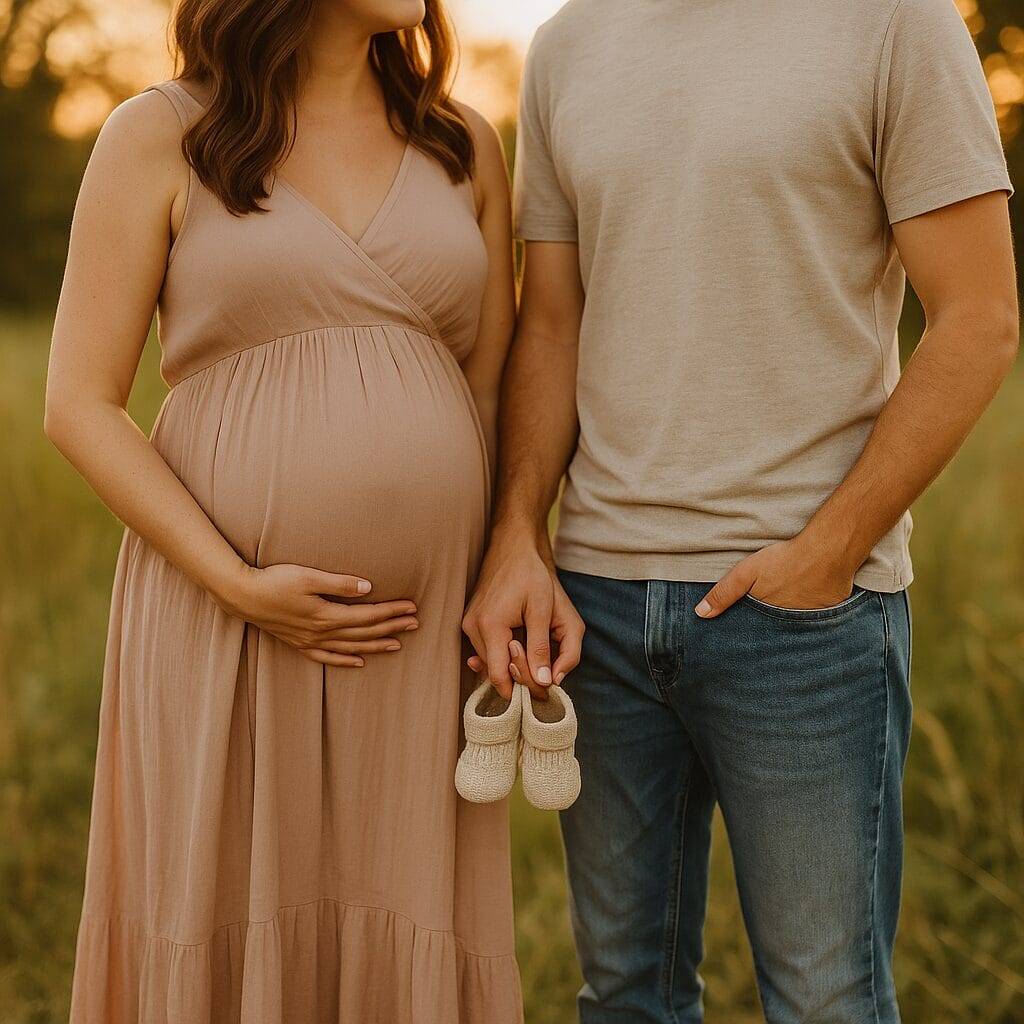Capturing beautiful moments of older newborns requires some special considerations. Here are some tips and ideas for a successful older newborn photography session.
Newborn photography is a unique and cherished way to capture the early moments of a baby's life. It allows parents to document the tiny features, delicate expressions, and unmatched innocence of their newborn. Many people believe that newborn sessions must be done within the first 14 days after birth in order to capture the baby in a sleepy and curly state. However, this is a common misconception.
While it is true that newborns are more likely to sleep deeply and curl up in the first few weeks, it's still possible and beneficial to have a newborn session after 14 days. In fact, waiting a little longer can result in different and equally beautiful images.

Addressing the Common Misconception
One of the main reasons why many people think newborn sessions should be done within the first 14 days is because babies are believed to be more cooperative during this time. It's true that newborns tend to sleep longer and are easier to pose in those first two weeks. However, this doesn't mean that older babies can't be captured in adorable and memorable poses.
By working with an experienced newborn photographer, they can use techniques and poses that are suitable for babies of all ages. They know how to create a safe and comfortable environment for the little ones, allowing them to settle, relax, and achieve those signature poses.
Setting Expectations Correctly
When working with older newborns, it's important to set realistic expectations with parents. Unlike younger newborns, older babies may not be as sleepy or easily poseable. They are more alert and have greater mobility, which can make certain poses challenging. Parenst must understand that some poses may not be able to happen based on how the baby is that day. It is good to discuss what is possible and what may not work as well for baby's age. Even if the little one doesn't sleep through the entire session or curl up into tight poses, you can still capture beautiful images that reflect baby’s unique personality.
Older newborn sessions often focus on capturing the baby's expressions and interactions rather than solely relying on posed shots. Bring meaningful props or items that hold sentimental value, such as blankets, stuffed animals, or family heirlooms. These personal touches can add depth and meaning to the photographs.
The Benefits of a Later Newborn Session
Having a newborn session after 14 days can bring a whole new set of advantages. During the first two weeks, babies are still adjusting to life outside the womb and may experience more discomfort or fussiness. Waiting a little longer allows them to become more settled and relaxed, resulting in a happier and more content baby during the session.
Furthermore, babies' features start to change and develop rapidly after the first two weeks. They become more alert, their eye contact improves, and they start to show their unique personalities. Capturing these milestones is equally as precious as capturing the moments of a sleepy newborn.
Additionally, for parents who may have missed the ideal timeframe for a newborn session, scheduling a session after 14 days is still an opportunity to create beautiful memories. It's never too late to capture the love and connection between a newborn and their family.
In conclusion, while the idea of having a newborn session within the first 14 days is common, it's important to understand that it's possible and enjoyable to have a session after this timeframe. Experienced newborn photographers are skilled in working with babies of all ages, and waiting a little longer can result in equally captivating and cherished images.

Understanding Newborn Photography
Newborn photography is a specialized genre of photography that focuses on capturing beautiful and timeless images of newborn babies. It is a popular trend among parents who want to document and cherish the first few weeks of their baby's life. The main objective of newborn photography is to capture the fleeting moments of a baby's early days, creating lasting memories for the family.
When it comes to newborn photography, timing is crucial. It is highly recommended to schedule the session within the first 14 days of the baby's life. There are several reasons why this timeframe is preferred. Firstly, newborns at this stage are still very sleepy and easily poseable, allowing the photographer to capture those adorable and curled-up poses. Secondly, babies are less likely to have baby acne or rashes during the first two weeks, resulting in smoother and clearer skin in the photographs. Lastly, newborns tend to be more cooperative in terms of being positioned and posed in various props and setups.
During a newborn photography session, common practices include using soft and gentle lighting to create a warm and calming atmosphere. Props such as baskets, blankets, and hats are often used to add visual interest and enhance the overall composition of the images. The photographer will also pay attention to capturing close-up details like tiny fingers, toes, and facial expressions, as well as the interactions between the baby and their family members.
While photographing newborns within the first 14 days is ideal, it's not always possible due to various reasons. Sometimes parents may decide to have a photography session when their baby is slightly older, between 3 to 6 weeks old. Although it may be more challenging to achieve the same level of sleepiness and flexibility as in the first two weeks, photographing slightly older newborns presents its own unique opportunities.
Older newborns are typically more alert and may make eye contact with the camera, resulting in photographs that showcase their emerging personalities. They may also have stronger neck control and the ability to display a wider range of facial expressions. Capturing these milestones can be equally precious for parents, as it documents the baby's growth and development during the early stages of life.
Newborn photography aims to capture the beauty and innocence of babies in their earliest days. The first 14 days are often recommended for the most optimal results, but photographing slightly older newborns also presents its own set of opportunities. Whether it's capturing the delicate features of a brand-new baby or the emerging personality of a slightly older newborn, newborn photography allows families to preserve these precious memories for years to come.
Benefits of a Post-14-Day Newborn Session
Welcoming a precious little one into the world is an incredibly joyful and exciting time. Those initial weeks of a newborn's life are filled with priceless moments and unforgettable experiences that deserve to be captured and treasured for a lifetime. While it's common for parents to arrange a newborn photo session within the first two weeks after birth, there are plenty of advantages to scheduling a session beyond that timeframe.
1. More interactive and expressive
As newborns grow past the 14-day mark, they become more alert and interactive with their environment. Their bright eyes, adorable smiles, and curious expressions add a new level of charm to the photographs. Older newborns respond to sounds, touch, and their surroundings, allowing photographers to capture their emerging personalities. These moments capture the essence of their individuality, creating cherished memories for years to come.
2. Highlighting physical developments
After two weeks, newborns start to undergo noticeable physical developments. They become more aware of their bodies and begin to stretch, yawn, and make cute little movements. This provides photographers with new angles and opportunities to capture their tiny hands and feet, cute little rolls, and unique features. These physical changes make for captivating and dynamic photographs, showcasing the beauty of a growing baby.
3. Capturing continued emotional significance
While the first 14 days are often considered the optimal time for capturing newborns, the emotional significance of these early moments remains just as significant after this period. Every stage of a baby's early days holds a special place in a parent's heart. By scheduling a post-14-day newborn session, parents can preserve their child's growth and cherish the memories of their first days at home. These photographs serve as a reminder of the love and joy experienced during this unique phase of life.
In conclusion, scheduling a post-14-day newborn session offers a range of benefits that should not be overlooked. Older newborns are more interactive and expressive, allowing photographers to capture their emerging personalities. The physical developments that occur after 14 days provide new angles and opportunities for creative and beautiful photographs. Ultimately, the emotional significance of capturing these early moments remains just as important, regardless of the specific timeframe. By documenting these precious moments, parents can treasure the memories and share them with their children as they grow older.
Challenges and How to Overcome Them
When it comes to photographing older newborns, there are a few challenges that both parents and photographers might encounter. Being prepared and understanding how to handle these challenges can help ensure a successful session. In this article, we will outline some of the potential challenges and provide tips on how to overcome them.
1. Less Flexibility
As newborns grow older, their flexibility decreases. This means that they might not be as easily posed into those adorable curled-up positions. Parents and photographers need to have realistic expectations and be open to adjusting the poses and positions to suit the baby's comfort. It's essential to prioritize the baby's safety and comfort over getting the perfect shot.
To overcome the challenge of less flexibility:
- Use props and blankets to support the baby in comfortable and natural-looking poses.
- Opt for more relaxed and natural poses that allow the baby to stretch and move comfortably.
- Take breaks during the session to allow the baby to rest and readjust.
2. Increased Alertness
Older newborns are often more awake and alert during photography sessions. This can make it challenging to capture those peaceful and sleepy moments that are characteristic of newborn photography. However, with the right approach and patience, it is still possible to capture beautiful images.
To overcome the challenge of increased alertness:
- Create a calm and soothing environment with soft music and a warm temperature.
- Try to schedule the session when the baby is more likely to be sleepy, such as after a feeding.
- Be patient and allow the baby to settle into a comfortable position before trying to capture the shot.
- Embrace the baby's awake moments and capture their unique expressions and interactions with their parents.
3. Importance of Patience and Flexibility
One of the most important factors in overcoming challenges during a photography session with an older newborn is patience. Babies can be unpredictable, and it may take time to create the desired poses or capture those precious moments. Parents and photographers should approach the session with a flexible mindset and be willing to adapt their plans as needed.
Here are a few tips for practicing patience and flexibility:
- Allow extra time for the session to accommodate any breaks or adjustments.
- Communicate openly with parents and listen to their concerns or preferences.
- Be prepared with alternative poses or setups in case the baby is not comfortable with the initial plan.
- Take breaks when needed to soothe or feed the baby, ensuring their comfort throughout the session.
In conclusion, photographing older newborns comes with its own set of challenges. However, with the right approach, patience, and flexibility, parents and photographers can still create beautiful and memorable images. By understanding the potential challenges and following the tips provided in this article, you can navigate these challenges with confidence and capture precious moments that will be treasured for years to come.
Preparing for Your Newborn Session
When it comes to capturing the precious moments of your newborn's early days, having a well-prepared and organized photoshoot session is key. Not only does it ensure that you have a smooth and stress-free experience, but it also allows the photographer to capture those tiny details and emotions that make these moments so special. From choosing the perfect props to setting up a cozy and comfortable environment, every little detail counts in creating timeless memories for you and your little one.
Preparing for a Session with an Older Newborn
When scheduling a newborn photoshoot, it is important to consider the age of your baby. An older newborn, typically between 3 to 6 weeks old, may have different needs and abilities compared to a brand-new baby. Here are a few tips to help you prepare:
- Schedule the session: Reach out to your photographer as soon as possible to secure a date for the session. It is best to plan it within the first six weeks of your baby's life.
- Choose a comfortable location: Decide whether you want the session to take place in a studio or at home. Both options have their advantages, so consider what would make you and your baby most comfortable.
- Time it right: Schedule the session during a time when your baby is typically awake and alert. This will allow for more opportunities to capture those adorable expressions in natural light. You can also consider choosing a time when your baby is well-rested and fed, as they tend to be more content and cooperative during photo sessions..
- Feeding and napping: Ensure your baby is well-fed and well-rested before the session. A content and settled baby will lead to better and more relaxed photographs.
Choosing Outfits, Props, and Themes
Selecting the right outfits, props, and themes can enhance the overall look and feel of your newborn session and make it even more memorable. Here are some tips to consider:
- Outfits: Opt for comfortable and soft clothing that is easy to put on and take off. Avoid outfits with too many buttons or complicated fastenings to minimize discomfort for your baby.
- Props: Keep it simple and use props that won't overwhelm your baby. Soft blankets, baskets, or cute hats can add a touch of charm without taking away from your baby as the main focus.
- Themes: Choose themes that reflect your style and personality as a family. Whether it's a floral theme, a sports-themed setup, or a favorite book-inspired scene, let your creativity shine through.
Setting Expectations for the Session's Flow
Understanding what to expect during the newborn session can help alleviate any anxiety or uncertainty you may have. Here are some guidelines to keep in mind:
- Time duration: Newborn sessions can vary in length, typically lasting between 2 to 4 hours. This allows time for feeding, soothing, and capturing those precious moments.
- Patient approach: Photographers are experienced in working with babies, so they understand the need for patience. Be prepared for breaks and pauses to accommodate your baby's needs.
- Flexibility: Babies can be unpredictable, so it's important to remain flexible throughout the session. Be open to capturing spontaneous moments and allowing your baby to guide the session in their own unique way.
By following these tips and guidelines, you can ensure a successful and enjoyable newborn session with your older baby. Remember, the goal is to create lasting memories that capture the beauty and innocence of this precious stage in your little one's life.
Capturing the Moment: Photo Ideas and Themes
Taking photos of newborns is always a magical experience, but when the baby is slightly older, there are some unique photo ideas and themes that can really capture their personality and charm. Here are a few suggestions to inspire your next photoshoot:
- Outdoor Adventure: Incorporate elements of nature and the great outdoors into your photos. You can use props like small tents, wooden crates, or even a mini campfire to create a rustic and adventurous atmosphere.
- Dreamy Bedtime: Set up a cozy and dreamy scene using soft blankets and pillows. Capture the baby in different poses, such as lying on their tummy or curled up with their favorite stuffed animal. Add a touch of whimsy by hanging fairy lights or using a dreamy backdrop.
- Milestone Celebrations: Celebrate the baby's milestones by incorporating them into the photoshoot. For example, you can create a mini graduation theme with a tiny cap and gown, or a birthday theme with balloons and a mini cake. These photos will not only capture the baby's personality but also create lasting memories for the family.
- Family Bonding: Include the parents and siblings in the photoshoot to capture the unique bond that a slightly older newborn has with their family. Encourage them to interact with the baby, whether it's cuddling, playing, or simply gazing at each other with love.
Encourage embracing the unique aspects of slightly older newborns in the photos
While it's common to focus on photographing younger, brand-new newborns, there is something wonderful about photographing slightly older babies. Encourage families to embrace their baby's unique characteristics and personality when planning a photoshoot. Here are some ways to capture the beauty of older newborns:
- Expressive Faces: Slightly older newborns often display a wider range of facial expressions, from curious looks to joyful smiles. Encourage parents to capture these precious moments and focus on the baby's expressions, as they can tell a story and bring the photo to life.
- Interactions and Movements: Unlike younger newborns who spend most of their time sleeping, older newborns are more active and have better control over their movements. Encourage parents to capture moments of their baby kicking their legs, stretching, or trying to hold onto objects. These dynamic shots can beautifully showcase the baby's growing abilities.
- Unique Features: Older newborns often have developed features that make them even more adorable. Encourage parents to highlight their baby's chubby cheeks, tiny toes, or even their first tooth coming through.

As a newborn photographer, I've had the opportunity to witness and capture some truly remarkable moments. One story that stands out is the session I had with Francisco, Claudia, and their adorable daughter, She was just over a month old at the time of our shoot, which is a bit older than the typical newborn session. Fransico and Claudia had to wait a bit longer for their session, but this delay turned out to be a blessing in disguise.
From the moment I met their little girl, I was captivated by her angelic features and her heartwarming smile. Unlike the sleepy poses typical with younger newborns, Lily was more alert and interactive, which allowed us to explore a range of expressions and poses. Her parents, were a bit concerned initially, worrying that we might not be able to capture the classic newborn essence since she was past the usual two-week mark. But their worries soon vanished as the session progressed.
The shoot was filled with tender moments. I remember how the little one’s eyes lit up every time her parents cooed and talked to her, and these interactions led to some magical shots. We managed to capture a beautiful mix of peaceful sleeping poses, as well as more lively and expressive photos showcasing her emerging personality.
Fransico and Claudia were immensely patient and cooperative throughout the session, and their love and connection with their little one shone through in every photo. They were amazed at the variety of shots we captured, and they particularly loved the images where Lily’s bright eyes were looking right at the camera, full of curiosity and wonder.
This session truly exemplifies the beauty and possibility in photographing older newborns. It reinforced my belief that it's never too late to capture the beauty and innocence of a newborn. Each stage, whether it's the first two weeks or a month in, holds its own unique charm and significance. It was a heartwarming reminder of the joy and gratitude that newborn photography brings into the lives of families. It's a testament to the fact that regardless of the timing, the bond between parents and their child is precious and incredibly rewarding to document. These are the moments that families will treasure forever, and being able to provide them with these lasting memories is what makes my role as a newborn photographer so fulfilling.
Conclusion
When it comes to capturing the precious moments of your newborn, age should never be a barrier. Regardless of how old your baby is, every moment is worth cherishing and documenting.
Parents often think that newborn photography is only possible during the first few weeks of their baby's life. While it's true that capturing those early moments can be especially magical, it's never too late to preserve memories of your little one.
Whether your baby is a few days old or a few months old, a newborn session can still be a wonderful experience that you won't regret. As your baby grows, their personality and features develop, providing unique opportunities for beautiful photographs.
By choosing to have a newborn session, you are giving yourself the gift of eternal memories. In those photographs, you will be able to revisit the earliest days of your child's life, witnessing their tiny features, delicate expressions, and the love that surrounds them.
Not only do newborn photographs capture your baby's cuteness, but they also tell a story. Each photograph is a window into a particular moment in time, allowing you to relive the early days of parenthood. As the years go by, these photographs will become treasured mementos of your child's infancy.
Moreover, newborn photography is an art form that requires skill and creativity. Professional photographers can create stunning images that truly depict the uniqueness and beauty of your baby. They know to capture the perfect angles, use the right lighting, and create a comfortable and safe environment for your little one.
So, regardless of the exact age of your newborn, consider investing in a newborn session. Embrace the opportunity to capture the fleeting moments of your baby's life. These memories will last a lifetime and can be cherished by your family for generations to come.
In conclusion, don't let the misconception that newborn photography is only for the first few weeks deter you. Every stage of your baby's life is worth preserving and celebrating. With the help of a skilled photographer, you can capture the essence of your baby's infancy in timeless photographs. Cherish every moment, and let newborn photography serve as a tangible representation of the love and joy that fills your heart.
Share with Other New Parents
If you found this article helpful, we encourage you to share it with other new parents who might also benefit from the information provided. Parenting can sometimes feel overwhelming, and it's always reassuring to learn from others who are going through similar experiences. By sharing this article, you're not only helping others, but you're also contributing to the growth and support of the parenting community.



